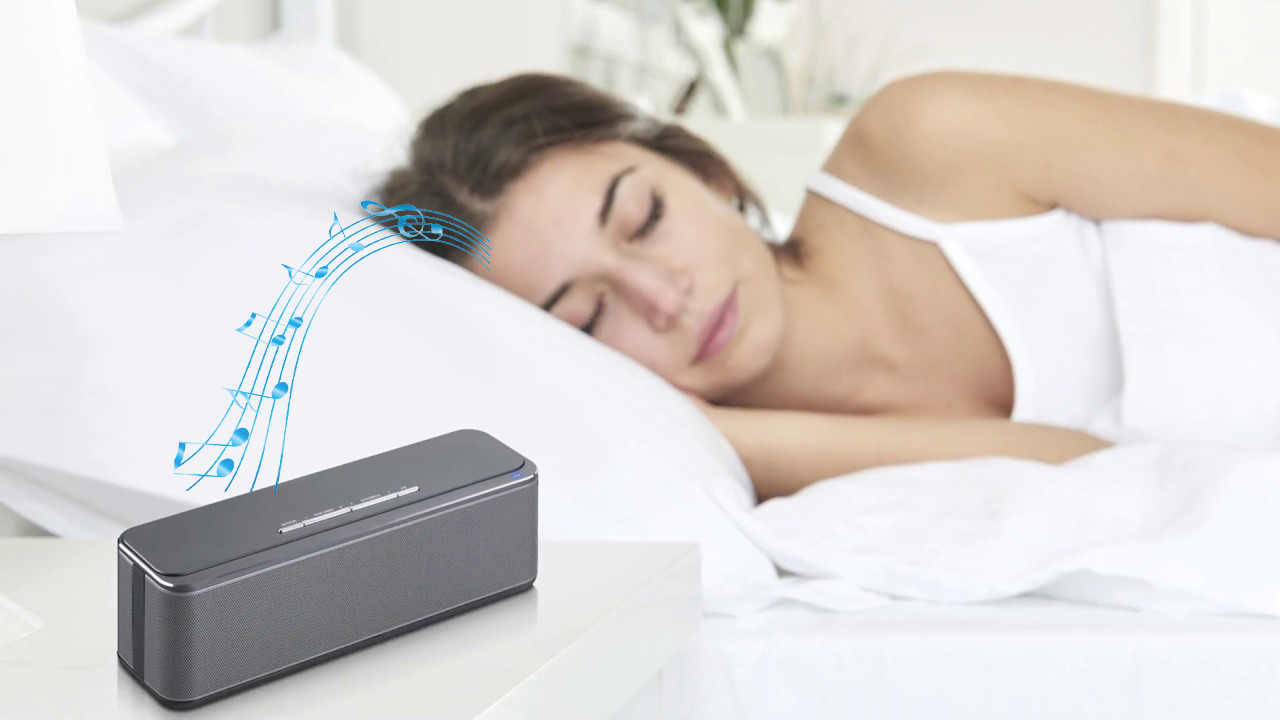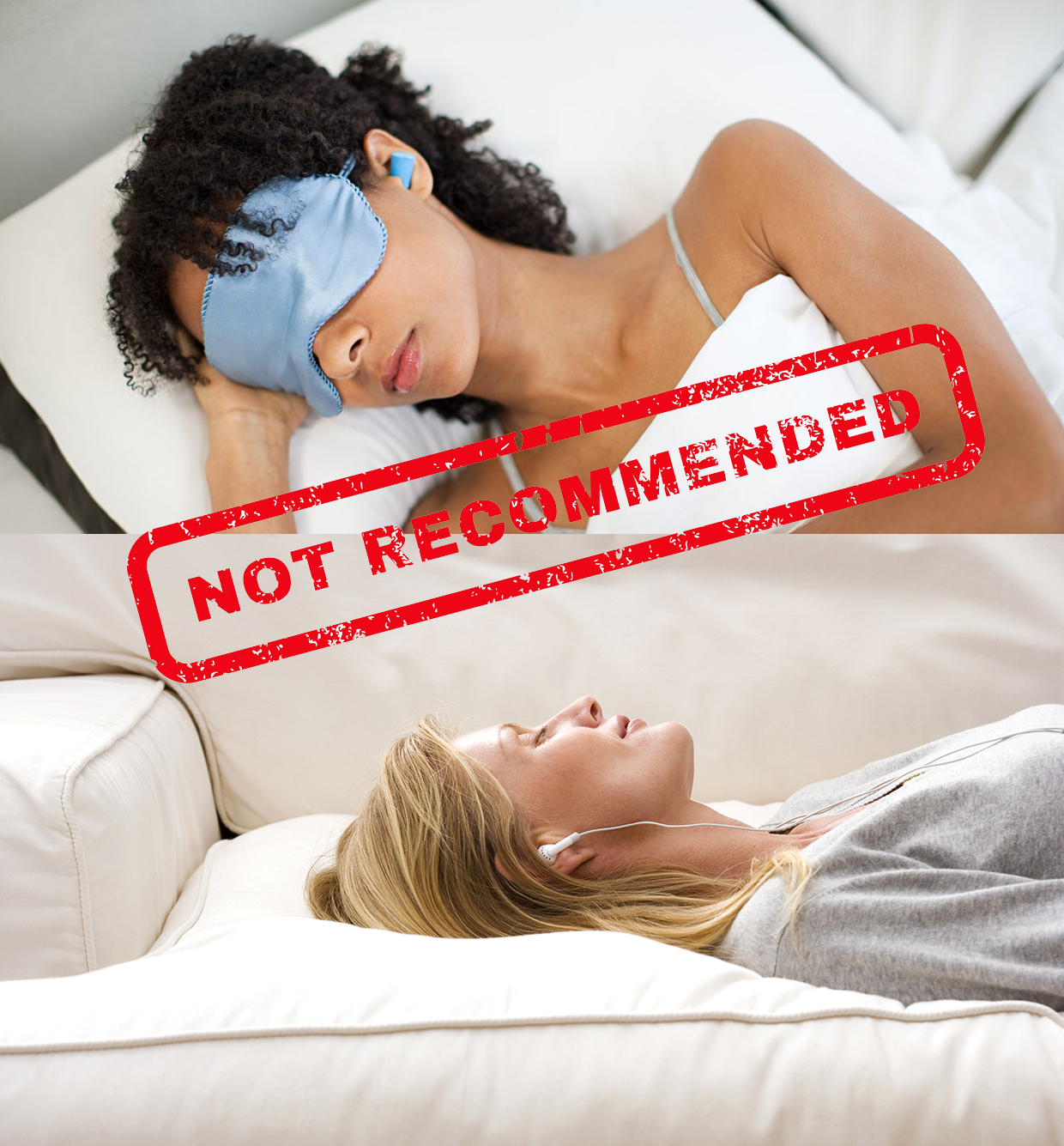We’ve all experienced insomnia at some point in our lives. While some have a hard time falling asleep, others experience difficulty staying asleep. Insomnia is a serious concern because when left unchecked it can be detrimental to health.
You’ve probably read a number of articles suggesting tricks to sleep better at night - creating a healthy sleep environment, establishing a sleep routine and putting away your electronic devices. Listening to music has also shown positive results in improving sleep quality. It has not only helped people suffering from insomnia sleep faster but better too.
Want to know more? This article discusses the relationship between relaxing music and deep sleep. Read on.

Music like other art forms such as painting is known to be therapeutic. It relaxes the mind. It puts you at ease.
Think about babies. They fall asleep to the comforting tones of a lullaby. The same applies for adults too. Listening to music before bedtime has been increasingly recommended by experts.
In fact, there are a number of studies that highlight how music has helped enhance sleep quality. Bedtime listening helps fall asleep faster. It reduces nighttime awakenings. You also wake up more refreshed and energised.
The experience of listening to music to improve sleep is a largely subjective one. Nevertheless, here are the ways in which it promotes sleep. As the mind processes sound waves, it gives rise to several physical effects in the body. They work in two ways. Either it aids directly with sleep, or helps cope with factors that impact sleep.
A mind racing with thoughts is often one of the reasons we find it difficult to sleep. Music helps clear the mind and silence the brain by providing a temporary distraction. It helps the body relax by releasing feel-good hormones such as dopamine. It promotes sleep by lowering anxiety and stress. High levels of stress lead to elevated levels of cortisol in the body, which in turn result in hypervigilance. Listening to music reduces the levels of cortisol and puts you at ease. Select studies have also reported that tunes with a slower tempo have shown to reduce the heart rate.
But, not all kind of music puts you to sleep
An upbeat tune might end up stimulating the brain instead of calming it.
Create a playlist to snooze to. It is essential to choose a song with the right tempo. A slow, soothing tune should help you relax and drift off to sleep. Slower rhythms in the range of 60 to 80 BPM are an ideal choice for your sleep playlists.
There is a scientific reason behind it. A tempo of 60 beats per minute matches the resting heart rate. Hence, the calming effect. Classical and yoga music qualify as low-tempo music perfect for someone seeking help with chronic sleep related problems. Instrumental music is another option available to you.
When picking songs for your playlist, check the emotions a song evokes. Many of us associate selected songs with specific events or memories for instance a funeral, wedding or breakup. Such songs are best avoided in your sleep playlist. The reason being instead of inducing sleep, they evoke strong emotional responses and crowd the mind with unnecessary memories. Pick something neutral. The songs you include should be familiar and to a certain extent predictable.
What works for one may not necessarily work for another. Therefore, using relaxing music to induce deep sleep is a matter of experimenting to decide what does the trick for you.
How to incorporate music in your sleep routine?
Thanks to a number of tracks and streaming apps readily available you can sing yourself to sleep. Here’s how to make it a part of your sleep routine.

Do not use headphones or ear plugs. They are not only uncomfortable in bed, but could also cause damage to the ear canal if placed incorrectly. Not only this, they may get lodged in deeper in your sleep increasing the risk of ear infections. Prolonged use might also cause ear wax buildup.
Instead you can invest in a set of portable speakers and a small stereo. Adjust the volume to a level that is soothing and not jarring to the ear.
Use pillow speakers. Designed to listen to music in bed, these pillows incorporate speakers inside the pillow. They are a hands-free option available in different sizes.
Be patient. It is a little impractical to expect results on the first day of bedtime listening. Training the mind takes a while. It won’t be before 3-4 weeks that you observe an improvement in your insomnia.
You can use music at night and at naptime in the afternoons.
Review a few music streaming apps. You are sure to come across specially curated playlists to induce sleep. A few also throw in bedtime stories for adults. Thus, there are tracks to cover a wide base of users.
Music is a no-frills method to battle sleeplessness. However, one may have to combine it with other healthy sleeping habits to realise the benefits of music therapy to the greatest extent.
- Disconnect from all devices at least an hour before bed. The shorter wavelength of blue light disturbs the sleep-wake cycle.
- Try out soothing drinks. Herbal teas like chamomile act like sedatives calming the mind and inducing sleep on consumption.
- Review your sleep environment to check if there is any factor interfering with sleep. Get a firm mattress; one that’s comfortable and offers good lumbar support.
- Adjust the lighting in your bedroom. Avoid extremely bright lights. Use red lights across sleep areas. Dimmer switches fitted to lights help adjust the brightness according to the time of the day. Motion-activated lights are an ideal option for lighting up pathways or bathrooms.
- Stick to a bedtime routine. Go to sleep and wake up at the same time each day. When you do this, your internal body clock falls into a fixed sleep pattern.
If despite everything, you are unable to find a solution to insomnia, you should consult a doctor. Insomnia could be a secondary symptom of some health issue.